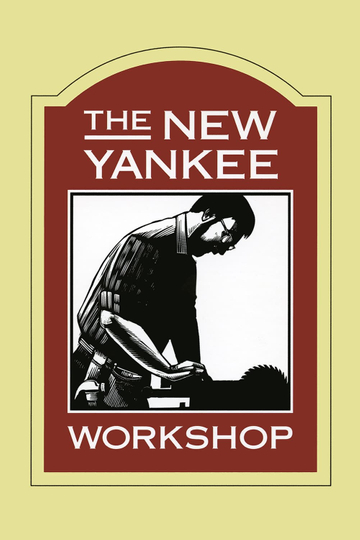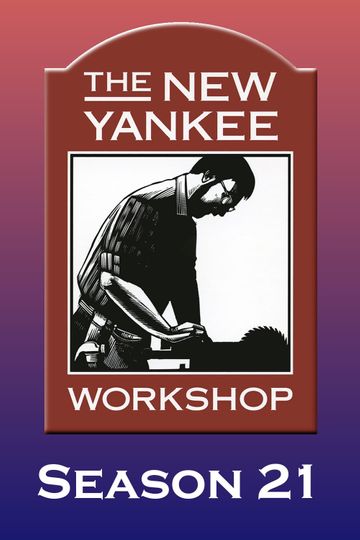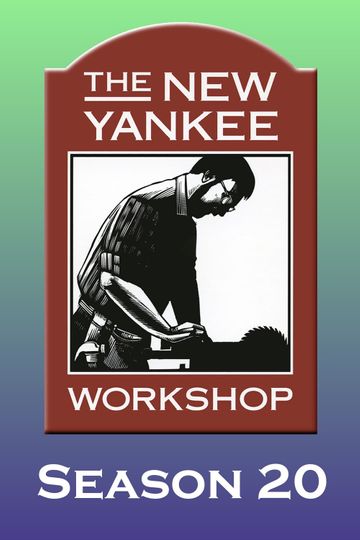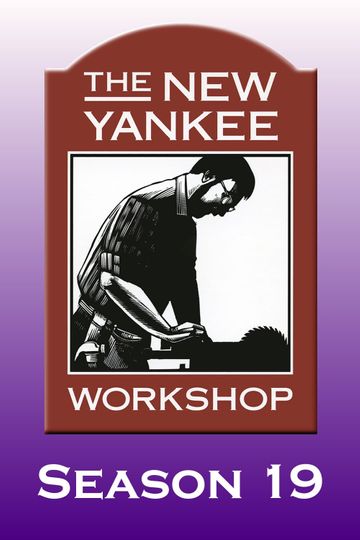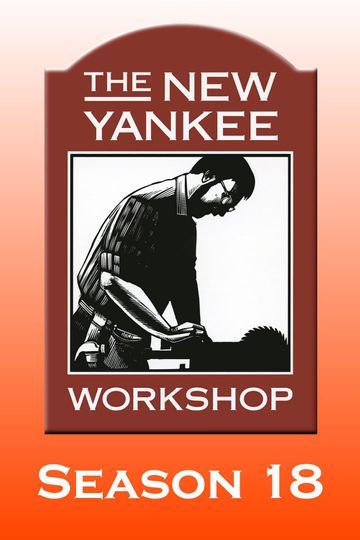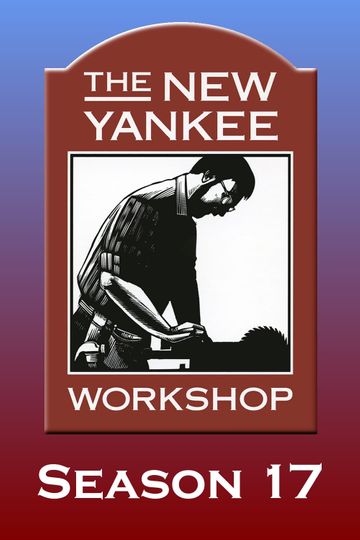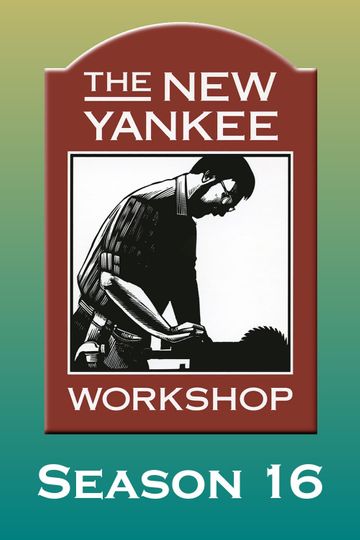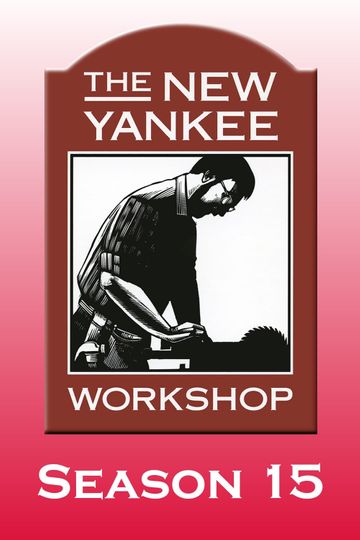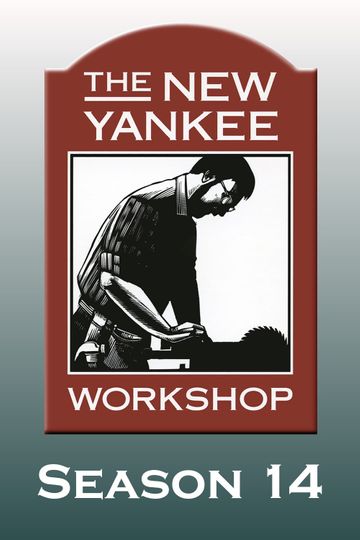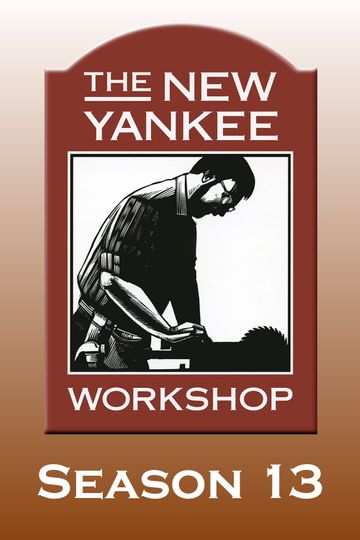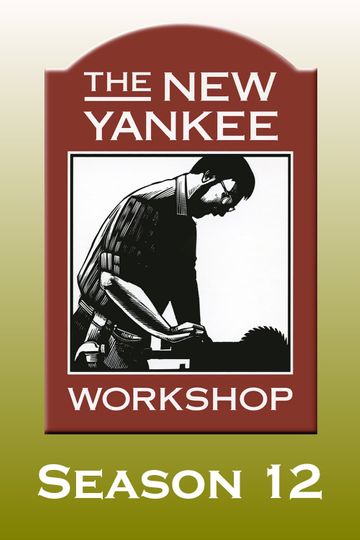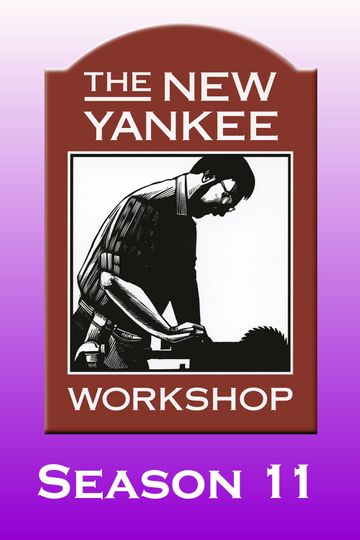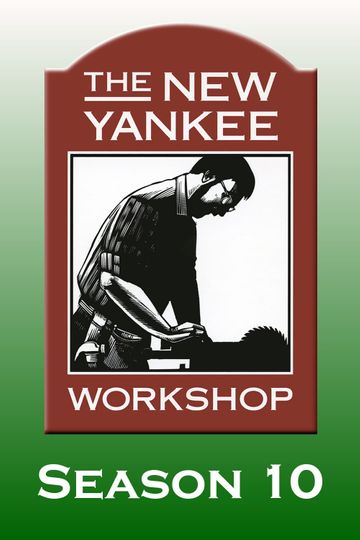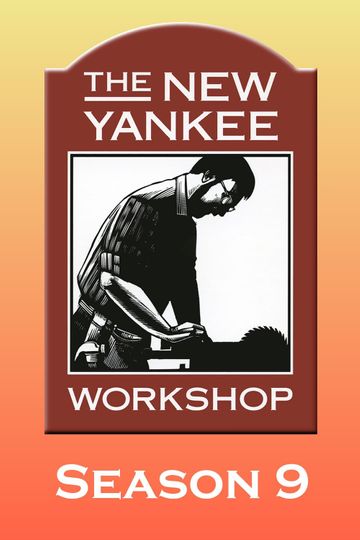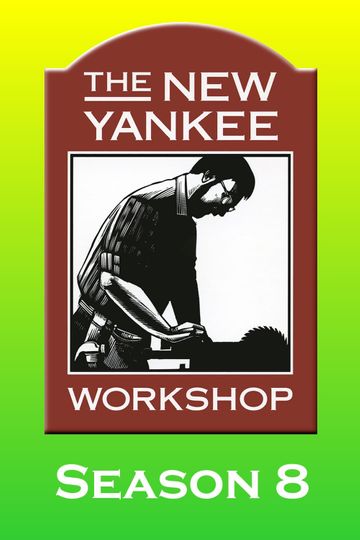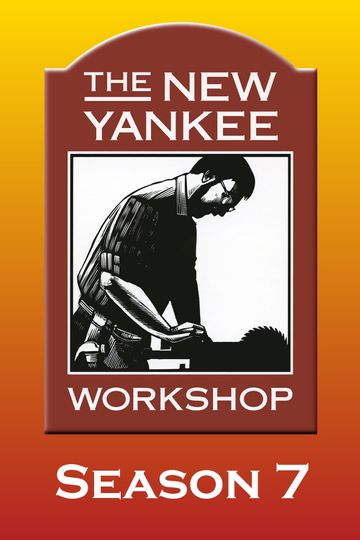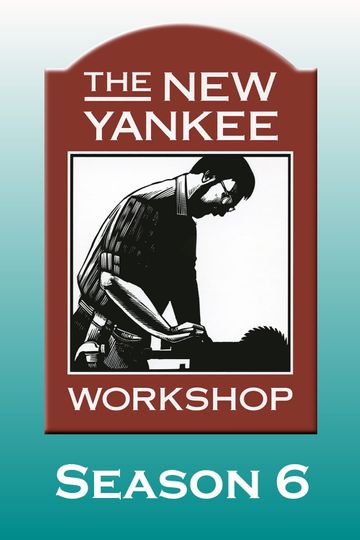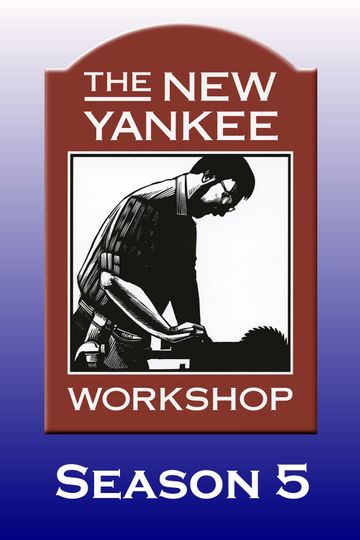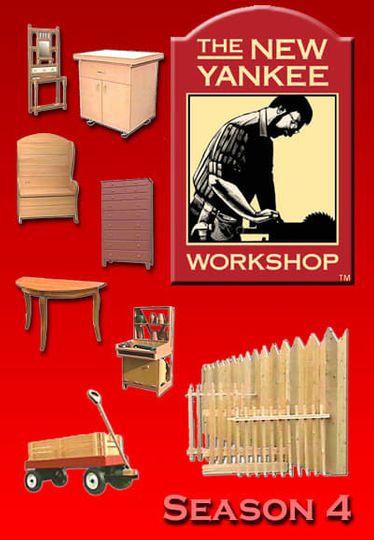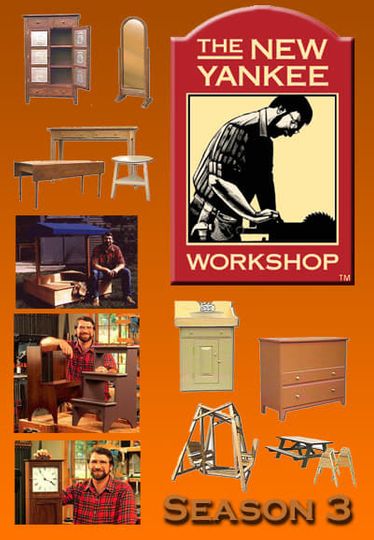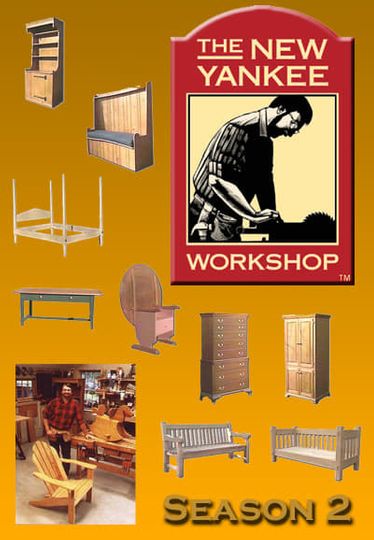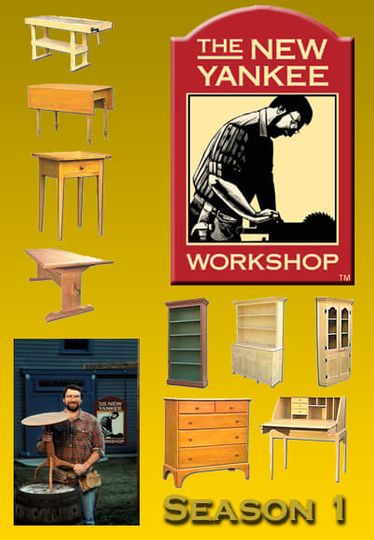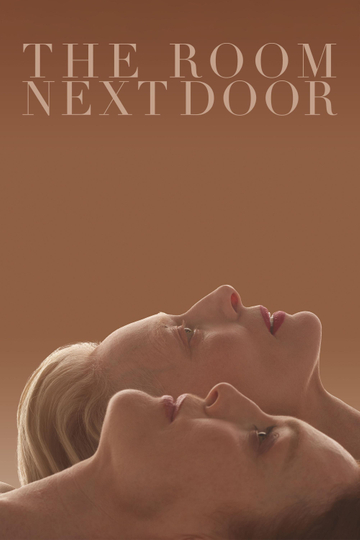Season 2 Plot
Norm builds an ash rocking horse, a cypress Adirondack chair, a mahogany butler's table, a pine kitchen dresser, a pine hearthside settle, a poplar pencil-post bed, a maple and poplar chair table, a pine kitchen worktable, an oak mission-style sofa, a Chippendale mirror, a cherry chest-on-chest, a teak English garden bench, and an armoire entertainment center.
The New Yankee Workshop Season 2 aired on January 6th, 1990.
Season 2 Episodes
1. Rocking Horse
After a look at a collection of wooden toys at Old Sturbridge Village, a "living history" museum in central Massachusetts, Norm builds a child's rocking horse from ash- a durable hardwood.
2. Adirondack Chair
Norm designs his own version of the rustic Adirondack chair out of cypress, an excellent wood that needs no preservatives or treatment.
3. Butler's Table
Norm visits Kingscote, an elegant Gothic Revival house in Newport, Rhode Island, for a look at a mahogany butler's table with four leaves that fold down on solid brass hinges. For his version of this stylish antique, Norm demonstrates the technique of biscuit joinery to glue together the boards for the tray, crafts mortise-and-tenon joints to connect the rails of the base, uses a molding head cutter on his table saw to add a decorative bead to the rails, and shows how to mount the tray's special hinges.
4. Kitchen Dresser
After a look at an early 18th-century kitchen cupboard at Old Sturbridge Village, a "living history" museum in Sturbridge, Massachusetts, Norm constructs his own version from pine featuring open shelves above a base cabinet whose door sports an antique-style hinge. He shows a pattern to draw the curved outline of the side pieces, then uses a hand-held saber saw to make the cut, saving the cut-out portions to make shelves. Using a molding head cutter on his table saw, Norm demonstrates how to add a decorative bead to the shelves.
5. Hearthside Settle
Norm travels to the Massachusetts harbor of Gloucester to look at a high-backed, curved hearthside settle at Beauport, the home of tarry 20th-century interior decorator and antiquarian Henry Sleeper. The house is now a museum run by the Society for the Preservation of New England Antiquities. Norm's version of this pine piece closes in the area beneath the seat to create a storage space and adds an access hatch in the seat. Norm shows how to cut the settle's curved cross-members and shaped side pieces, how to join the back boards with tongue-and-groove joints, and how to bend the back base board along the bottom of the frame.
6. Pencil-Post Bed
Norm visits the Shelbourne Museum in Burlington, Vermont to examine an antique pencil-post bed with a rope support system and a hay-filled mattress. Norm then adapts this design to accommodate a standard full-size mattress and box spring, and builds his pencil-post bed of poplar featuring mortise and tenon joints in the construction. The bedposts are tapered on the two inner sides, then beveled on all four corners to produce eight-sided, asymmetrically tapered posts.
7. Chair Table
Norm drops in on the Fitch House in Old Sturbridge Village, central Massachusetts' "living history" museum, to look at a chair table, with a tabletop that pivots back to form a back rest and a seat with a drawer underneath. Norm's version of this unusual but comfortable and serviceable piece features hardwood (maple) where needed - on the tabletop, arms and feet - and poplar for the sides, seat and drawer front. Norm cuts the shaped side pieces and curved arms and feet on the band saw, shows how to create a sliding dovetail joint to attach the seat and drawer support to the sides, and demonstrates a trick for cutting the large circular tabletop by mounting a specially made jig on the band saw.
8. Kitchen Worktable
Norm constructs a kitchen table that functions equally well as a dining table or a worktable. Built of pine, the table features tapered legs and storage drawers, with a center rail joining the pairs of legs. Norm employs a specially made tapering jig to fashion the legs and uses mortise-and-tenon joints to put the table together.
9. Mission Style Sofa
In a departure from the traditional New England-style furniture usually featured on The New Yankee Workshop, Norm draws inspiration from the furniture craftsmen of the southwestern United States to constructs mission-style sofa whose signature simple lines and oak frame allow for cushions. Despite its distinctive regional flavor, Norm's design for this project features the same woodworking techniques - including mortise-and-tenon joinery - he employs in creating his other pieces.
10. Chippendale Mirror
In a change of pace, Norm shows how to build picture and mirror frames, emphasizing tools and clamps designed specifically for this purpose. Norm uses a mitre box and a table saw outfitted with a jig to cut frames and demonstrates a variety of techniques to fasten corners.
11. Chest on Chest
With this eight-drawer, cherry chest-on-chest Norm simplifies a complicated project that may, at first glance, seem daunting to the home woodworker. Norm demonstrates techniques of biscuit joinery on the side panels and dovetail joinery on the drawers and cross-rails, then shows how to craft sculpted, contoured feet for the base using a band saw, table saw, template and router.
12. English Garden Bench
Norm leaves his trademark plaid shirt and jeans at home and dons a stylish suit and derby when he visits London for a look at an authentic English garden bench. Norm constructs his version from teak. The bench is assembled entirely with mortise and tenon joinery and pegs to ensure its strength and durability. Norm shows how to shape the bench's many curved pieces on the band saw, demonstrates how to create tenons with a tenoning jig mounted on the table saw, and reveals a trick for cutting angled mortises on the drill press.
13. Armoire (Entertainment Center)
Norm winds up The New Yankee Workshop's second season with an armoire based on classic designs but adapted to contemporary use: it can double as a home entertainment center. Norm's version is constructed largely of veneer plywood and features raised panel doors. In building the project, Norm demonstrates many of the joinery techniques he's employed throughout the season, including dado, dovetail and mortise-and-tenon joints - and shows how to use a shaper to create moldings for the piece.










